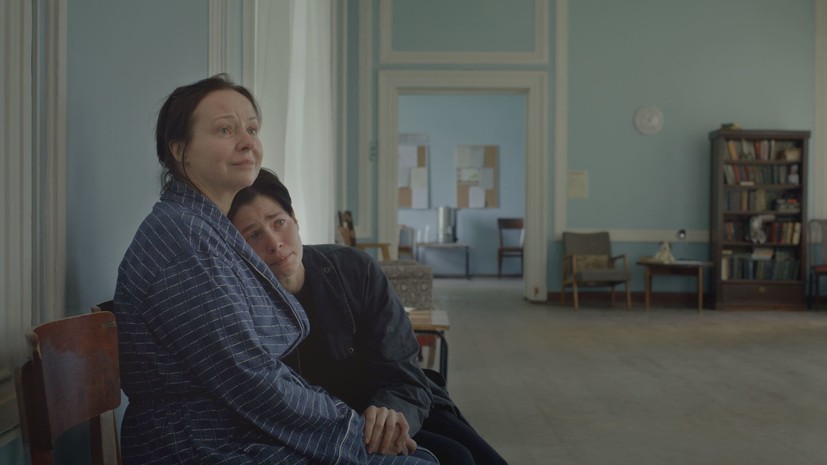On Thursday, November 24, the cinemas will begin showing the dramatic film The Season of Winter, directed by actress Svetlana Ustinova.
For her, as a director, the work became her debut feature.
The plot of the picture revolves around Katya (Yulia Snigir), the organizer of events, and her mother (Evgenia Dobrovolskaya) - or rather, around their difficult relationship.
As Katya aptly notes, describing their communication with her mother, “Of course, I didn’t notice, but we usually don’t succeed for more than five minutes.”
The first layer of the storyline is the story of unloved children, onto whom their parents project their own failures, failures, or unfulfilled dreams.
There are two such children in the film: this is Katya herself, whose story is revealed in her conversations with her mother and flashback, and little Maya (Alexandra Babaskina), the daughter of the failed ballerina Ilza (Ekaterina Varnava), the client of the main character.
The parallel between Katya and Maya is so obvious and deliberately expressed that in some places it looks frankly caricatured - just like the game of Barnabas in a couple of episodes, where the artist is clearly overacting.
Katya was forced to sing as a child, which led to psychological trauma and fear of performances - in any case, she is sure of this almost until the end of the picture.
Maya got an ambitious mother, convinced that her daughter wants to make her dreams come true and become a ballerina.
As a result, the lines of the child and the adult who has been in his place are formed into a short and emotional dialogue on the embankment, the apotheosis of which is two confessions:
“To be honest, I sing terribly,” says Katya.
“And I am dancing,” Maya answers her.
© Shot from the film "The season is winter"
But psychological problems "from childhood", unsuccessful relationships and a secret abortion in the past are far from the worst in Katya's life.
The main tragedy gives the first bells when the domineering and despotic mother of the heroine disappears from the airport instead of flying to the resort.
Katya rushes home, where she finds the "missing" one, who, as if nothing had happened, watches TV and scolds her daughter on duty for her appearance, behavior and manners.
At the same time, completely forgetting about Katya's birthday.
As time goes on, Katya notices more and more strange things, and her mother is convinced that she has brain cancer.
However, an MRI examination does not show anything fatal, as it seems at first glance.
At the same time, the woman's condition is getting worse, the behavior is more strange, and the visit to the neurologist ends with a terrible assumption - dementia.
In order to confirm or refute the diagnosis, Katya needs to either send her mother to a hospital for a month, or bring her mother for examination every day for three months, which is impossible due to work.
And the heroine refuses to believe in the reality of the diagnosis - after all, the mother is not even 60.
This storyline was based on a real story from the life of Svetlana Ustinova - her mother began to develop a similar disease when the woman was only 56 years old.
Those trials that Katya goes through on the screen are partly inspired by what happened in the director's family.
Ustinova began writing the script to express emotions.
“A few years after the diagnosis of my mother’s illness, I just needed to throw out the accumulated emotional and everyday experience, the inexpressibility ate me from the inside, and I started working on the script.
My husband fully supported me, and it was very important for me to feel his rear in such a difficult undertaking, ”The City quotes Ustinova.
The inimitable play of Evgenia Dobrovolskaya became a great merit of the picture: she equally ideally fit into the role of a despotic mother, and just as reliably embodied on the screen the image of a person with dementia so that even those who have come across this disease firsthand will most likely believe her.
Panic attacks, repetition of the same phrases, gradual memory damage, leading to the fact that a person does not recognize others - Dobrovolskaya masterfully played all this, never creating a feeling of falseness or unnaturalness.
But, alas, the picture has a number of disadvantages, and the biggest of them is the poor development of most of the characters.
With all the talent of Yuliya Snigir, it is almost impossible to play such a poorly written character as Katya, so that he seems alive, and not a “bot”, the script of which only includes wringing his hands and screaming something pathetically.
Not even the heroes around her look the same cardboard, but the scenery - the common-law husband, father, Ilza.
Against the background of the work of the same Dobrovolskaya, the only "live" on this stage, all the rest are just a set of silhouettes and sketches.
But for the final scene, Ustinova can only be applauded - one tiny detail in the video from Katya's childhood turns everything upside down and emphasizes the depth of the problem in the family and in herself.
The character really comes to life in her last minute on the screen - when Katya realizes that she perceived many things incorrectly, and she no longer has and will not have the opportunity to correct anything.

